It is a long time since I spent a morning on the gallops with the footballer-turned-racehorse trainer Mick Channon (he was in Lambourn at the time), but it proved an education for me and for two inappropriately dressed young owner’s daughters who also turned up. Their vocabularies were extended considerably. National Treasure though he became, as one of our great footballers, Mick Channon the trainer is expletive-driven and easily angered to a Basil Fawlty level, which is disheartening for the jockeys and apprentices he often fires at roughly fortnightly intervals, who are still there the next week. His default mood is somewhere on the downside of grumpy.
In the best racing book of the year his son and assistant Mick Channon junior, who not surprisingly named one of his own horses Needless Shouting, admits that in his father’s world a conversation is an invitation to agree with him or have a barney. As far as Channon senior is concerned, ‘Delegation is what happened to Burnley last season.’ Mick junior concludes: ‘Only a successful footballer or a racehorse trainer could get away with it.’
The son has to cope daily with a father who could win the Nobel Prize for bollockings in a canter, but fortunately his sense of humour enables him to cope. He relates how, on one occasion, Mick senior kicked angrily at a traffic cone a wayward two-year-old had dislodged and inflamed his arthritis: it was filled with sand. On another, enraged by the price offered by a bloodstock agent’s pricing of a horse, he declares: ‘In future we’ll fly our own canoe.’ Mick junior decides on the spot to name another horse The Flying Canoe.
Writing How’s Your Dad? (Racing Post, £20) — which is centred around a car crash that killed an owner and nearly killed his father, and around Mick senior’s operation for a carcinoid — has clearly been cathartic. But through it all runs a true affection that his father, too, possesses but in true English dad-style has found hard to show. Most of the racing world, could he but see it, shares that affection for Mr Grumpy. The danger of the many bollockings he dishes out is that jockeys can become more frightened of failure than of striving for success. You have, though, to admire his relentless work ethic and the fact that Mick Channon cares not a jot for the strike rates that can govern an owner’s choice of trainer: he wants every horse to win a race and will persevere through 25 attempts if that is what it takes. I loved Mick junior’s borrowed description of racing as the process of ‘introducing successful people to failure’.
Another £20 Racing Post volume on which to spend your book tokens is Sprinter Sacre: The Impossible Dream (edited by Brough Scott). This is a beautifully illustrated tale of a truly spectacular horse who captured racing hearts not just with his early coruscating brilliance but with his comeback after two years in the shadows of recuperation following heart problems. Published just before his trainer, Nicky Henderson, had to announce the end of Sprinter’s career following another injury, it will be a handsome memorial.
If a champion jumper is a picture, the bold, athletic, imperious and handsome Sprinter Sacre was a masterpiece. But I will always remember the words Nicky uttered after what proved to be his final race at Sandown. Pondering aloud on the agonies of handling a national hero — the trainer’s equivalent of carrying a Ming vase down a long polished corridor — he admitted: ‘I was looking for every excuse not to run him, but there weren’t any. His work was good, he looked amazing and his schooling was brilliant …I’m dying to stop and let him open supermarkets, but why pack it in now? This is what makes National Hunt racing. He enjoys racing and racing enjoys him.’ Long may Sprinter enjoy his supermarket Polos.
Racing-fiction writers have been on form too. You could say that with his phenomenally successful and entertaining series of novels the former jockey Dick Francis did racing a disfavour by giving millions the impression that racing contains only the dodgy, the deceitful and the deadly. Son Felix has successfully carried on the brand and his latest, Triple Crown (Simon and Schuster, £18.99), is as briskly readable as ever. What marked Dick Francis’s novels as a cut above the usual blood-and-thunder brigade was the meticulous research: one year it was meteorology; another fine art or bullion-trading. Felix continues that tradition: Triple Crown is not just a novel but a well-informed dissertation on the widespread use in American racing of drugs such as furosemide (known popularly as Lasix or Salix) and the anti-inflammatory phenylbutazone (or ‘bute’). Investigator Jefferson Hinkley may not have the complexity of a Le Carré character but Triple Crown is instructive as well as entertaining.
Racing folk will enjoy, too, Red Hand (Authorwise, £14.95), a deftly woven blend of fact and fiction based on ever-dependable racing historian Michael Tanner’s researches for his successful investigation of the Suffragette Derby.
Got something to add? Join the discussion and comment below.
Get 10 issues for just $10
Subscribe to The Spectator Australia today for the next 10 magazine issues, plus full online access, for just $10.

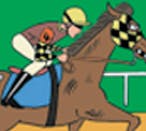
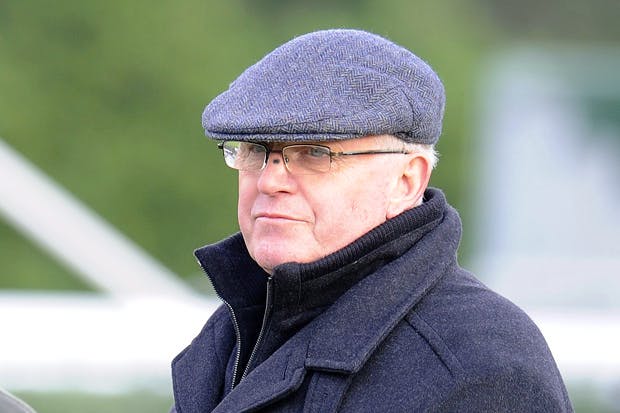
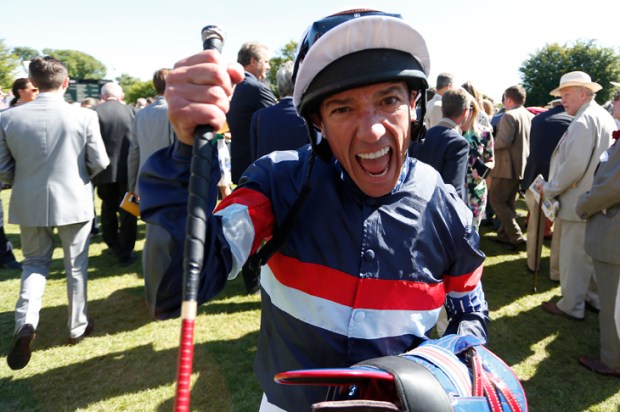
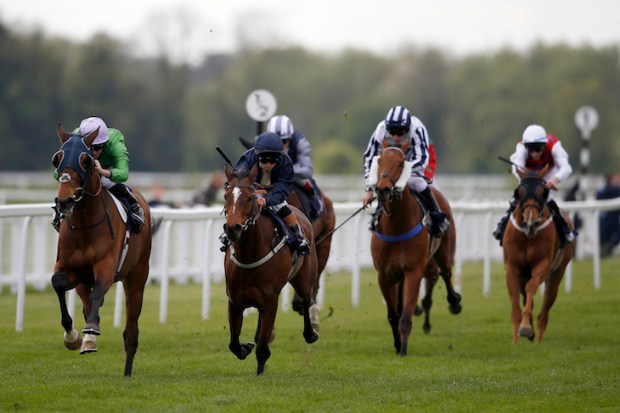
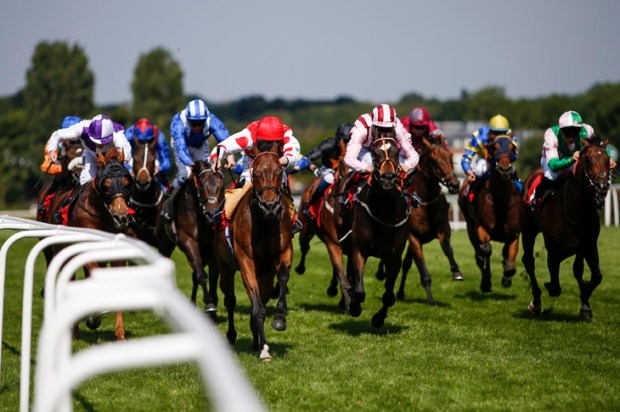
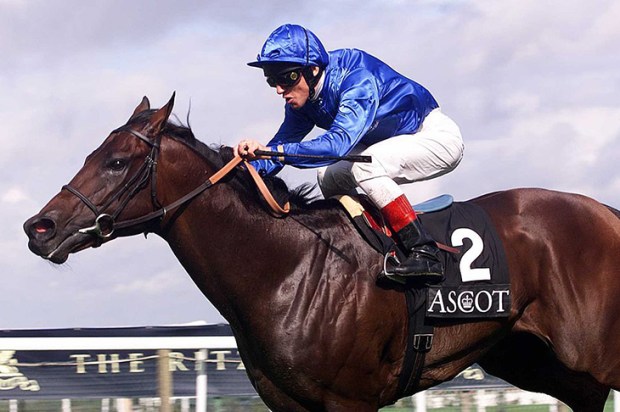
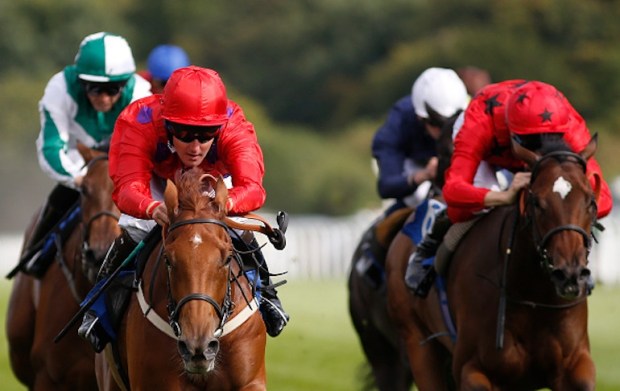
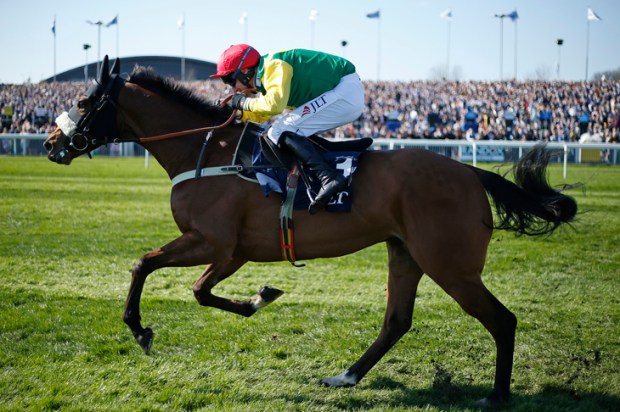






Comments
Don't miss out
Join the conversation with other Spectator Australia readers. Subscribe to leave a comment.
SUBSCRIBEAlready a subscriber? Log in